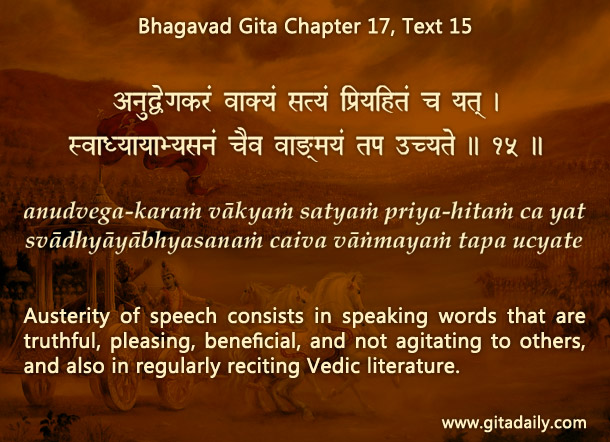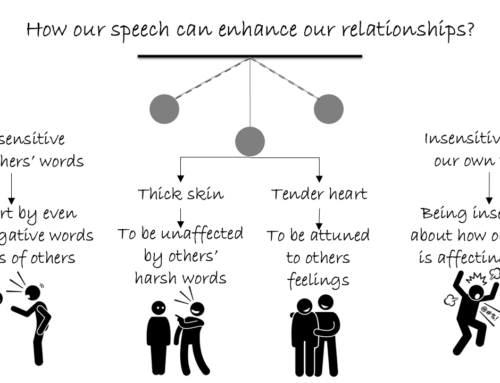What are we seeking when we are speaking? – When we speak with others to persuade them about something, how can we make our speaking more effective? By remembering that speaking is meant to do four broad things.
Open eyes: When sharing any truth with others, we need to focus not on instructing them to do things differently, but on helping them to see things differently. When our words expand their vision by, say, showing them the consequences of their choices, that equips them to choose wisely. Pertinently, the Bhagavad-gita (17.15) urges us to speak truthfully.
Open hearts: People often need to know how much we care before they care how much we know. When we speak politely and respectfully, conveying how we have their best interests at heart, they are more likely to see us as their well-wishers and therefore consider our words non-defensively. Pertinently, the Bhagavad-gita (17.15) urges us to speak beneficially.
Don’t shut mouths: When others have misconceptions that they try to justify, we may need to refute their ideas. During such refutation, if we mock them or insult their intelligence, we may silence them, but we won’t convince them; we will just alienate them. Result: battle won, war lost. To prevent such hollow victories, we need to learn how to disagree without being disagreeable. Pertinently, the Bhagavad-gita (17.15) urges us to speak pleasingly.
Don’t shut minds: If we present arguments that make no sense to others, they may decide we are not even worth talking with. For example, if we argue based exclusively on scriptural authority with those who don’t accept such authority, they may mentally clam up. Better base our points on mutually acceptable foundations such as logic or shared human values. Pertinently, the Bhagavad-gita (17.15) urges us to speak non-agitatingly.
One-sentence summary:
Speak to open people’s eyes and hearts, not to shut their mouths or minds.
Think it over:
- How can we open people’s eyes and hearts?
- How may we avoid shutting people’s mouths and minds?
- When communicating, how can you better incorporate these purposes? Which purpose do you need to work on the most?
***
17.15: Austerity of speech consists in speaking words that are truthful, pleasing, beneficial, and not agitating to others, and also in regularly reciting Vedic literature.
To know more about this verse, please click on the image
Explanation of article:
Podcast:




The best and current atmosphere makes all of us to have this skill.
Yes, thanks.